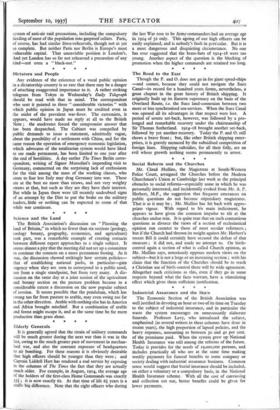Elderly Generals It is generally agreed that the strain of
military commands will be much greater during the next war than it was in the last, owing to the much greater pace of movement in mechan- ised war, and also the constant exposure of headquarters to air bombing. For these reasons it is obviously desirable that high officers should be younger than they were ; and Captain Liddell Hart has rendered a real service by exposing in the columns of The Times the fact that they are actually much older. For example, in August, 1914, the average age of the holders of the first-class Home Commands was exactly 55i-; it is now exactly 62. At that time of life 61 years is a really big difference. Note that the eight officers who during the last War rose to be Army commanders had an average age in 1914 of 52 only. This ageing of our high officers can be easily explained, and is nobody's fault in particular. But it is a most dangerous and disquieting circumstance. No one has ever suggested that the brass-hats of 1914-18 were too young. Another aspect of the question is the blocking of promotion when the higher commands are retained too long.
* * * *










































 Previous page
Previous page